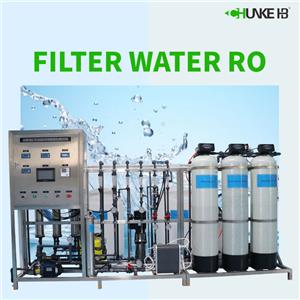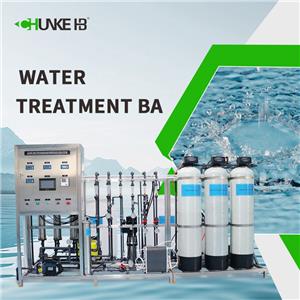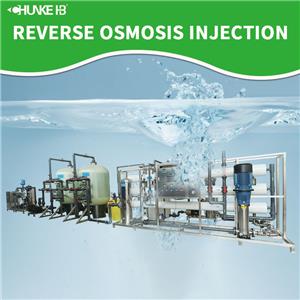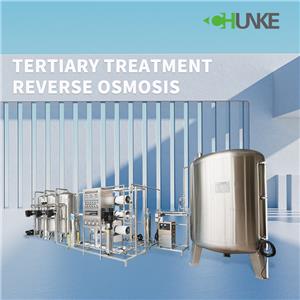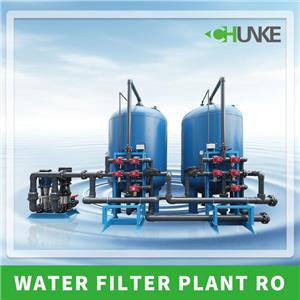-
12-06 2024
What is a water filter? How long is the service life of a water filter?
A water filter, also known as a water purifier or water filter, is a device that removes impurities from water by physical, chemical or biological means. Its core function is to filter out suspended particles, harmful substances, microorganisms, etc. in water to obtain clean water that meets drinking or use standards.
-
10-25 2024
Can reverse osmosis filter mud from water?
The pore size of the reverse osmosis membrane is generally between 0.1 and 0.001 microns, which is enough to block most bacteria, viruses and dissolved ions. However, the solid particles in the mud are usually larger than this range, so in theory, the RO membrane can block these particles.
-
10-11 2024
What are the three main problems caused by seawater desalination?
Three main problems of desalination: Issue 1 Environmental impact ● Brine discharge ● Use of chemicals ● Long-term impact on marine ecology Issue 2 High energy consumption ● Scale of energy consumption ● Energy sources and environmental impact ● Restrictions on renewable energy Issue 3 Economic cost ● Initial investment and operating costs ● Water prices and economic feasibility ● Funding and resource allocation
-
10-10 2024
Can seawater be filtered? What is the best seawater filter?
For seawater treatment needs of a home or small community, an integrated reverse osmosis system is usually the best choice. This system is small in size, simple to operate, and can directly convert seawater into drinking water, which is suitable for home or small-scale users.
-
09-27 2024
Why do saltwater reverse osmosis use polyamide membranes?
Polyamide membranes have extremely high salt separation capacity and can intercept most of the dissolved salts. The salt content of the effluent can be as low as 5-10 ppm (parts per million), which is far lower than the requirements of drinking water standards.
-
09-17 2024
Is the water filtered by all filters as good as water from reverse osmosis?
RO systems typically have removal rates above 90%, and can even reach 99% for some contaminants. Mechanical filters, activated carbon filters, and ultrafiltration systems typically have lower removal rates, especially for dissolved substances and small organic molecules.
-
09-02 2024
What is the most effective water treatment method?
Reverse osmosis (RO) technology is considered to be one of the most effective water treatment methods. Reverse osmosis technology uses semipermeable membranes to efficiently remove dissolved salts, organic matter and microorganisms in water, and can provide high-quality purified water.
-
08-26 2024
Can reverse osmosis water be used for injection?
Although reverse osmosis water has high purity and sterility, it cannot be used directly for injection. The main reasons include: reverse osmosis water cannot completely guarantee sterility, endotoxin risk, and different purity standards (it may still contain trace impurities).
-
08-15 2024
What is tertiary system wastewater treatment? Is reverse osmosis used?
Tertiary system wastewater treatment, also known as deep treatment or advanced treatment, is a process of further purifying wastewater after primary and secondary treatment. Its main purpose is to remove dissolved organic matter, inorganic matter, pathogens etc.
-
08-07 2024
What Is a Reverse Osmosis Water Plant?
A reverse osmosis water plant is a facility that uses reverse osmosis technology to treat water. Its main goal is to remove dissolved salts, organic matter, microorganisms and other impurities in water through physical and chemical means to provide high-quality pure water.






